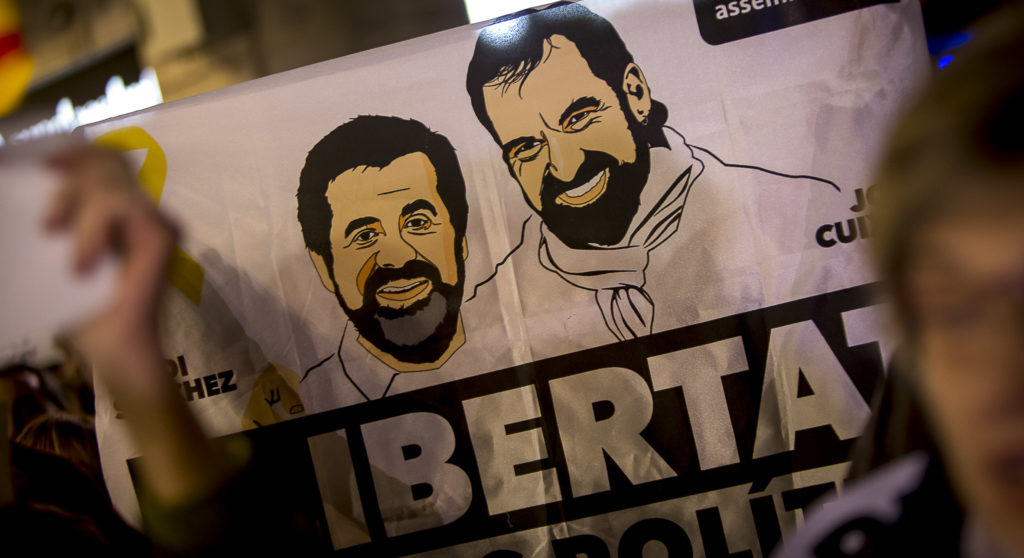09.10.2019 - 13:08
|
Actualització: 09.10.2019 - 15:08
It could be the last time that the defense teams of Catalan political prisoners Jordi Sànchez and Jordi Cuixart demand an end to their pre-trial imprisonment. With the Spanish Supreme Court expected to issue the verdict of the Catalan referendum trial in the coming days, which could carry lengthy prison sentences, the public prosecutor has begun proceedings to keep the accused behind bars in case the announcement takes longer than expected.
The lawyers of Cuixart and Sànchez have responded to the requested extension of their detention by making the umpteenth call for their release—probably for the last time before the final sentences are announced. With 12 Catalan leaders charged for their role in the 2017 independence bid, nine of them are currently being held in pre-trial detention.
Cuixart and Sànchez were the first of the twelve to enter jail on October 16, 2017. Next Wednesday will mark two years since their imprisonment, which sets a legal deadline for the time someone can be held in pre-trial detention in Spain—that, unless judges explicitly authorize an extension of their imprisonment.
Protest instigators
Sànchez and Cuixart were sent to jail following the independence referendum, accused of instigating protests to impede Spanish police efforts to stop the vote. An activist-turned-politician, Sànchez went from leading the Catalan National Assembly (ANC) grassroots group to becoming one of the most influential politicians in the Junts per Catalunya party, founded by former president Carles Puigdemont.
Cuixart has stayed as the president of Òmnium Cultural, a pro-independence organization promoting Catalan culture. The public prosecutor has requested 17-year prison sentences for Cuixart and Sànchez, accusing them of leading a violent rebellion against Spain’s constitutional order.
Human rights groups denounce “serious irregularities”
When the Supreme Court announces the long-awaited verdict, judges will also resolve whether the process undermined the right to defense of the accused, as suggested by lawyers, or if it was indeed a fair trial.
In the meantime, some human rights groups have already had their say. The International Federation for Human Rights (FIDH) and EuroMed Rights have denounced “serious irregularities” in a joint report, concluding that the process “didn’t offer the minimum guarantees to be qualified as fair.”
Observers from the two organisations, who attended the Supreme Court hearings in person, said that prosecutors called witnesses whose testimonies offered “stereotypical” narratives and didn’t guarantee the right to defense.


